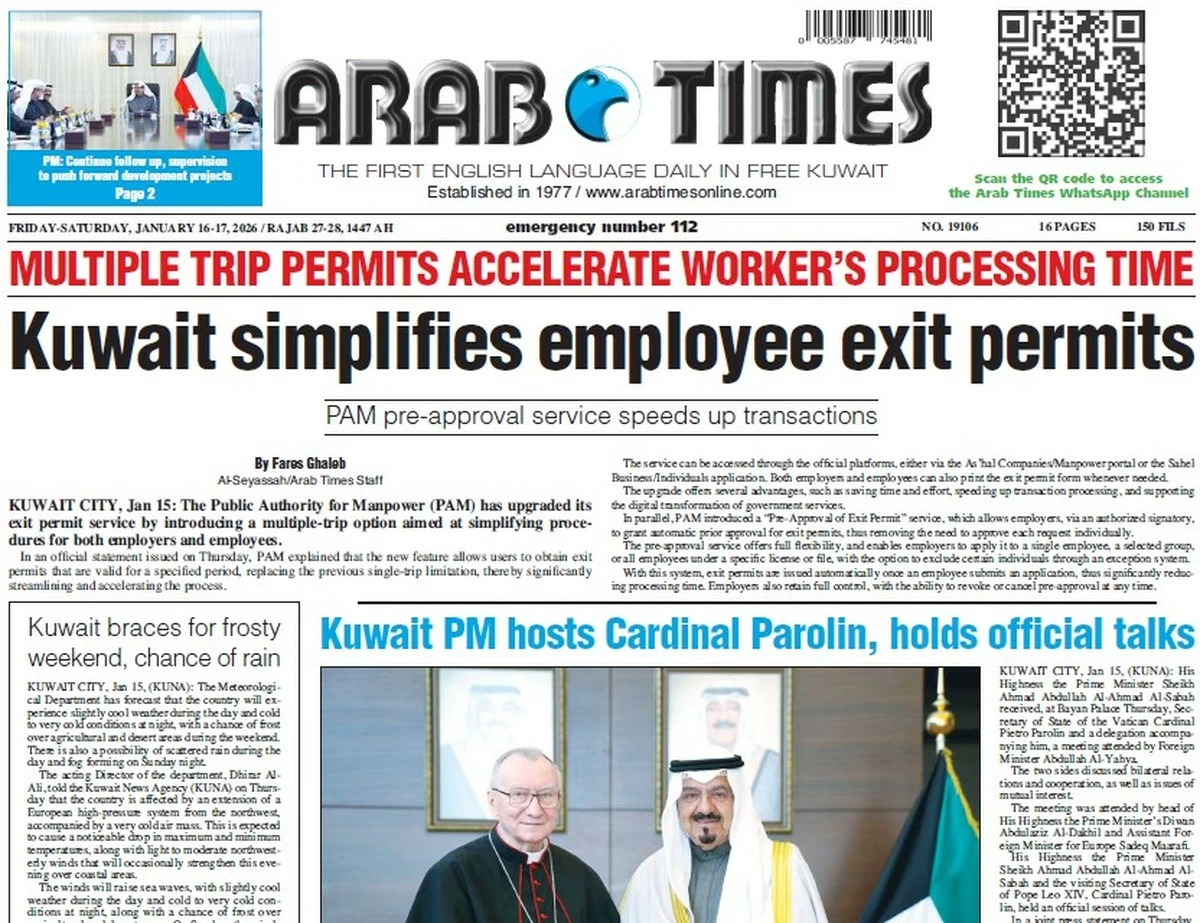13/11/2025
13/11/2025

KUWAIT CITY, Nov 13: Minister of Information, Culture, and State for Youth Affairs Abdulrahman Al-Mutairi affirmed that the Kuwait Jeopark Project, overseen by the Kuwait Oil Company (KOC), represents a promising national initiative that will significantly contribute to promoting tourism and highlighting the country’s environmental and cultural heritage.
In a statement issued Wednesday, the Ministry of Information said Al-Mutairi made the remarks during a meeting with a KOC delegation led by the Director of the Public Relations and Media Group, Mohammed Al-Basri.
During the meeting, the delegation presented a comprehensive overview of the Kuwait Jeopark project, which is scheduled to open in late December.
Minister Al-Mutairi stated that such a qualitative and forward-looking venture enriches national tourism and allows visitors to participate in diverse cultural, environmental, and entertainment activities. He noted that the project also provides an opportunity for youth to learn about Kuwait’s environment and its distinctive geological history, describing it as “a fundamental pillar for achieving national and cultural awareness goals.”
According to the ministry, the Kuwait Jeopark, located north of Kuwait Bay, is a national initiative designed to reinforce the country’s status as a global tourism destination in geology, archaeology, and environmental and cultural heritage. The project aims to serve as an open-air museum and living memory, envisioning northern Kuwait as “a world worth telling.”
The statement emphasized that the project holds great importance in enhancing Kuwait’s global presence by qualifying it for inclusion in UNESCO’s Global Geoparks Network. It also seeks to showcase Kuwait’s historical depth as part of its national identity, while developing ecotourism and geotourism as promising economic sectors that support the diversification of national income sources.
The ministry added that the project is intended to protect Kuwait’s natural and geological heritage, preserve its biodiversity and ecosystem, and raise public awareness about the importance of earth and environmental sciences through educational and interactive experiences. It will also promote scientific research and innovation in the fields of geology and cultural heritage.
The Kuwait Jeopark will be implemented in two phases:
- The first phase, a rapid development plan, covers an area of 20 square kilometers.
- The second phase will span 1,000 square kilometers, featuring over 300 native plant species, including ghaf, boxthorn, tamarisk, acacia, sedge, and wild jujube, along with scattered sedge seeds across the area.
The ministry further noted that the site’s facilities will include geological and heritage attractions, cafes, restaurants, handicraft shops, a stargazing platform, and comprehensive visitor services, in addition to administrative and security buildings.


